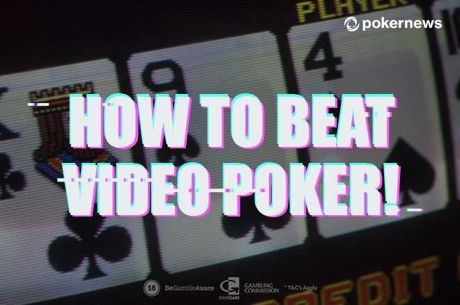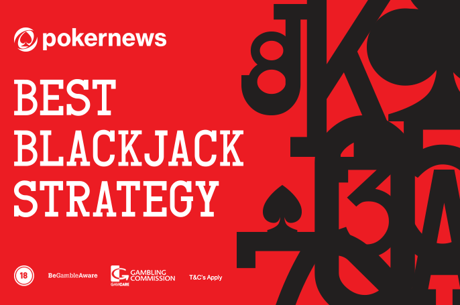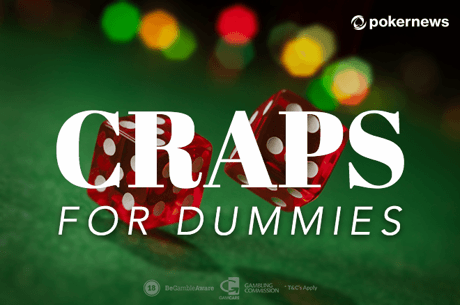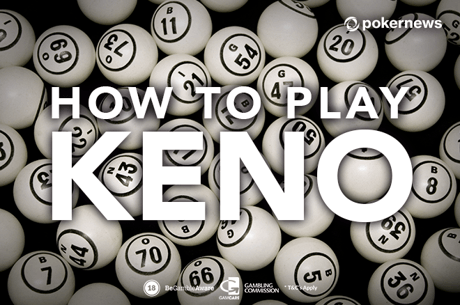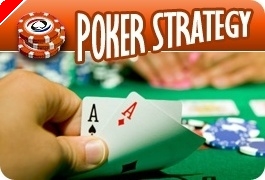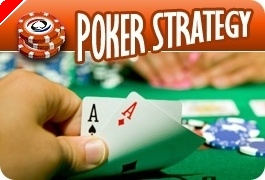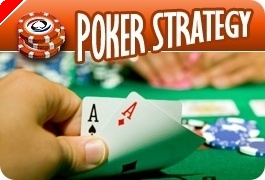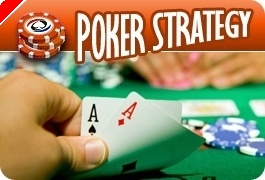Stud Poker Strategy: Improve and Fold

Seven-card stud is a complicated game, significantly more so than hold'em. Successful stud and hold'em players both must attend to the betting actions of their opponents to figure out their likely holdings. Stud and hold'em players both must have a good understanding of how their starting hands are likely to develop into profitable or unprofitable final hands. Both must be able to calculate 'outs' and understand pot odds and implied odds. But in stud alone, the good player must also keep track of his opponent's exposed cards. Knowledge of these exposed cards, both the ones in play and the ones that have been folded, allows the good stud player extra insight into the chances that his hand will improve. Knowing, for example, that three hearts have been folded during the play of a stud hand may convince the good stud player that drawing for that flush doesn't make sense.
These exposed cards are extra pieces of information available to stud players. But, counterintuitively, this extra information may hinder stud players from properly evaluating their hands.
In hold'em, players' hands develop simultaneously and identically as the board progresses from the flop to the turn and the river. All players share the same board. All watch it as it is turned. Accordingly, all but the least experienced and worst hold'em players are aware that a third card of one suit on the river, for example, may mean a flush for an opponent. Players with two pair are correspondingly careful about betting when that happens. Players on the turn drawing for a straight, when there are three suited cards on the board, are similarly cautious –- aware that they may be drawing dead.
But in stud, players are sometimes so absorbed in their own hands, and how they are developing, that they may not be paying attention to how their hand is stacking up against the hands that their opponents are likely to hold.
This is especially true of the beginning and intermediate player who has learned which starting hands to play and which to discard. He waits for one of few powerful starting hands, gets one, and then if the hand improves as hoped, he continues to play until the river, bound to ride the horse he jumped on at the beginning of the ride. What he's failed to recognize is that absolute improvement is not nearly as important as relative improvement.
Here's an example from a recent home game I was in. The lineup was pretty soft –- primarily recreational players who liked to call. One player was more serious, though not necessarily more skilled. He understood the importance of folding poor starting hands, but didn't appreciate the importance of looking around and evaluating his hand relative to the rest of the hands that were out.
He started with a three-flush on third street. He called, as did four other players. On fourth street he hit a fourth suited card. Two of his opponents paired their door cards. The higher of the two pairs made a double bet. The other player raised. The player with the four-flush called.
This was a terrible call. True, he had a four-flush and, with his flush cards all live, had about a 50% chance of making his flush. But he was against at least one and maybe two sets of trips right off the bat on fourth street. They also have about a 50% chance of making a full house. He should have folded his flush draw.
Here's another example. A player with a split pair of jacks raised the bring-in. Two players with overcards called. The first held a king, the second a queen. On fourth street the player with the split jacks caught a blank. The player with the king caught an ace. The next player caught a six:
(J 4) J 2
(x x) K A
(x x) Q 6
The second and third player checked and the first player, with his pair of jacks, bet. The next two players called.
On fifth street the player with the jacks caught another deuce; the second player caught a blank and the third player caught a jack. None were suited.
(J 4) J 2 2
(x x) K A 4
(x x) Q 6 J
The first player, now with two pair, bet. The second player raised. The third player re-raised. The first player called, as did the second player.
The first player made a terrible call. Unless each of his opponents is a maniac, logic and observation require a fold here.
True, the first player improved. Improving is good in a vacuum. But the betting action and exposed cards of his opponents demonstrates that he is very, very far behind. The second player must have either kings or aces up or trips. The third player almost surely has trip queens or trip sixes. In any case, jacks up, with one dead jack, is a huge underdog and very unlikely to improve to a winning hand. He should fold to the double bet rather than continue to draw for one of three cards that will give him a full house (and quite possibly a losing full house even if he makes it).
The problem for stud players is that they, like all poker players, begin their poker lessons by learning hand values. This is how poker is taught. We're all taught that a full house is a strong hand and a pair is a weak hand. In hold'em, since all hands are derived from a common board, players immediately recognize that all hands are relative. A flush is a good hand –- but only if the board can't make a full house. Trips are a good hand, but only if the board can't make a straight or a flush.
But in stud, players are inundated with data –- up to eight exposed cards on third street and then more on each successive street, plus their own hands. It's easy for them to put blinders on and just think about their own hand and its chances of improvement – neglecting their opponents' hands and their opponents' chances of improvement as well.
The good stud player pays attention to all of the data and weighs his hand's chances of improvement relative to the likely improvement of his opponents' hands. Sometimes, though his hand may improve –- but when weighed against the likely superior improvement of his opponent's hand, the best move is still to fold.

